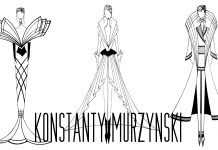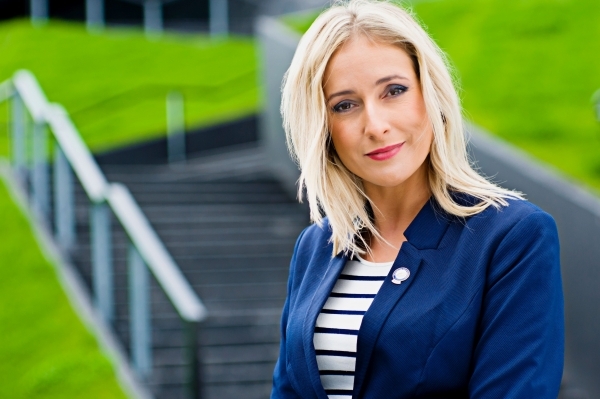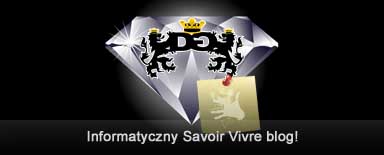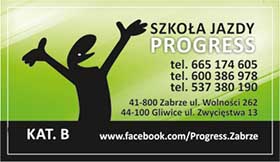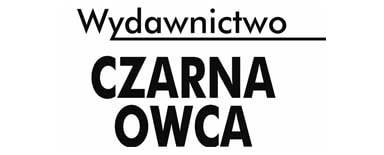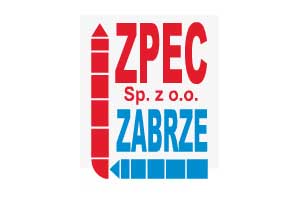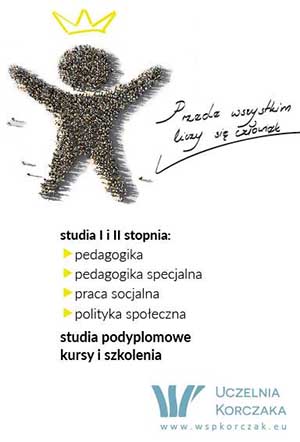Karolina Hudowicz, a business psychologist, corporate HR directorand certified ICF coach explains how coaching can be helpful and she describes its different types: professional, personal, for a team or managers. She points out that coaching aproaches a person holistically and that is why one cannot distinguish between a professional and private life. These two spheres will always be interdependent and will influence one another.
Why did you decide to become a coach? Before You specialised in English language teaching, it is also an interesting profession, isn’t it?
Why? Well, coaching is a process, like in every process thoughts and ideas evolve. I first learnt about coaching during my postgraduate studies at the Group Trainer Academy in 2007. One of the lecturers was Anna Syrek Kossowska (PhD), who had already worked as a coach. She was telling us many things about coaching, about differences between a trainer, a coach, a mentor and a therapist…in 2009 I took up at the Academy of Professional Coaching and it was my first yet the longest and the deepest coaching process- it lasted 9 months.
Yes, I was an English language teacher and during my BA studies I was working in private language schools, although I was studying Business English. The experience of being a teacher was good for me because I learnt to teach others. After studies I went to the USA – to travel and to work for one year.
After getting back to Poland I decided to accomplish my MA studies in spite of many programme differences. I studied Business Psychology, and then the Group Trainers Academy, the Academy of Proffessional Coaching, and Human Resources Management until I got the ICF ACC licence.
You obtained new competencies.
As I mentioned before, I am a certified ICF (International Coach Federation) coach and apart from a lot of previously learnt experience, knowledge, methods and tools I had to conduct many sessions with clients and with mentor – coaches before I took up the exam. The exam is a test online and recording of your own session with a client, transcription of the recording and sending it to the ICF assesors in the USA.
What is coaching?
There are many definitions of coaching, yet I will present the three most known ones:
1. Professional coaching is a developing professional relation aimed at obtaining extraordinary results in life, in career, in companies or in organizations. The coaching process enables clients to deepen their knowledge, to obtain better results and to improve quality of life…according to International Coaching Federation.
2. Coaching is about applying silence, questions and challenges aimed at helping the client to achieve a concrete professional goal…- according to dr Angus McLeod.
3. Coaching is helping people in making changes the way they expect it and helping them to go in the direction desired by them… according to International Coaching Community
As you can see, these definitions are similar…I would like to quote the metaphor of coaching by Milton Ericson, as in my opinion it represents most what actually coaching is about:
One day when I was still a student of the secondary school, a lost horse came to our farm. He had a saddle on, he was very sweaty and he was gasping for breath. We gave him water and we decided to bring him to his owner. Nobody knew though where he came from. I sat on him and directed him to the road. I knew the horse would choose the right direction, but I did not know where he would guide us to. The horse galloped ahead. From time to time he stopped and went to the fields to eat some grass. Then I reminded himgently about the road. After some time the horse turned toward some farm, where a delighted and amazed farmer came out to welcome us:
-This is my horse, where did you find it?- he asked.
-Some seven kilometers from here.
-How did you know where to bring him back?
-I did not know. Thehorse knew. I was only directing his attention to the road.
What kind of coaching do you specialise in?
Taking into consideration my corporate experience, I deal with a broadly perceived business coaching, but my personal experience makes private coaching also included in my offer, especially wellness coaching or health coaching in miscellaneous dimensions, well, maybe we talk more about that next time…
Who can be helped by a coach?
Everyone who needs a change, who is open towards oneself and changes, it is impossible to help someone who escapes, who is not ready to confront oneself. Coaching is for everyone who is mindful and mentally balanced, because you cannot help a client who is not aware that a change requires sometimes a difficult process. To Those clients who have deeper problems, for instance emotional ones or trauma I suggest first to work it out during a proper therapy and if they are ready for further changes, then I invite them for coaching.
What are the goals of coaching in business, what does it consist of?
Life coaching or personal coaching are primarily focused on personal aspects of a client, a widely perceived business coaching is mainly focused on professional area. Business coaching varies according to concrete needs of people, teams or entire companies or institutions seeking the help of professional coaches.
For instance, career coaching is an ideal solution for the graduates or unemployed people. Here a coach may act as an innovative and effective vocational adviser, because at times young people do not know what professional career they want to purse, they do not know their inner potential, but do have dreams…It is helpful when they do not know whether to continue education or to get a job, and what kind of education or job to take up.
Career coaching is also an ideal solution for those who are not happy about their professional situation or they do not know how to change their job or simply they are afraid to change it, and they feel worse and worse about it.
Another branch of business coaching is widely perceived executive coaching aimed mainly at top management and human resources management. Executive coaching focuses mainly on developing charisma and leadership skills and making the managers conscious of their own, personality features, temperament, emotions, intelligence, how psychical or cognitive features may positively influence their relations with employees and thus affect the results.
It is also a great tool for people managing their employeesto learn how to build career paths with their employees. This kind of support is willingly used by lower management staff and executives or presidents of companies.
Team coaching is also worth mentioning. It is a great form of support for entire teams, which for instance need better mutual communication to obtain better results. A company means primarily its people, and that is why leadership coaching is a project dedicated to the entire company, but based on individual work with the personnel and individual approach to every employee – the aim is to have better efficiency in internal co – operation.
Currently I have more and more often requests for coaching for a whole company to raise the company strategic development and effectiveness on the market and to reinforce its market position. It is the so called strategic business coaching.
What levels at a company does business coaching involve?
Business coaching may be conducted at all levels depending on the needs of employer, manager, team, directors or presidents.
Is it better to apply internal or external coaching in a company?
During meetings at Coaching Forum or other meetings held by IFC, I often hear from my colleagues that our Polish executive managers send their employees to coaching, because they don’t achieve results or something undesireable has taken place and these workers undergo coaching according to the logic „you get coached to fix you up””… and it is often impossible to work with such a client since his/her attitude is negative from the beginning.
External or internal coach? Each of these forms has its strengths and weaknesses depending also on the specific character of the chosen company and on whether the coaching culture has been introduced in that company. Fortunately more and more often companies are open to introduce coaching within their structures, as there is nothing worse than „coaching as a punishment”.
Internal coaching brings tangible benefits if a number of principles described in literature are fulfilled.
It often happens that an internal coach is an HR employee or a manager who has been working for long time in the company thus someone who knows the company needs and profile. In such a case an obstacle may arise as these persons have a lot of their own responsibilities and often they don’t have enough time. Another risk, which I notice, is inability of a coach to keep the right balance between expectations of the coached employee, other team members and company needs or in a relation between a subordinate – client and manager – coach. An employee can face problems with opening himself to his superior to talk about own weaknesses and competence gaps. Additionally, employees are afraid that this information can be used against them despite the assurance of the session and process confidentiality.
, Advantages of internal coaching can be immense;team building orientation,, giving employee constructive feedback and full support provided that coaching is conducted in ideal conditions. Firstly, it is the employee who should define the goal/problem, look for a solution and discuss during session what has happened. which should be done regularly at every session. A motivating working and learning environment should be provided to the employee- it is a task of a coach.
A coach, however, should not try to substitute a coachee in his work in the process of non – simulated learning situation in everyday work.
Building up a proper relation requires much time and developed interpersonal competencies of a manager – coach. Nowadays managers – due to their extensive knowledge and experience of the organization perform a function of mentors rather than coaches and I think it is a good solution.
Internal coaching compared to external one has limited advantages. It is because a coach employed permanently in one organization does not have a diverse perspective, for instance on other organizations. Moreover, I suppose that despite best intentions he/she will not be able to provide complete objectivity and will not be able to direct all his attention to the coaching process.
External coaching guarantees full objectivity to the organization and full concentration on the goals determined by the organization.
A coach during a session focuses on mantaining balance between the interest of a coachee and strategic goals of the company. Employees find it easier to open up in front of an outsider and to talk about their own problems, even the intimate ones. It is much easier to get the coachee’s trust of. Coaching sessions can be more intense, because a coach will focus on the coaching process only and will dedicate time only to a coachee.
An advantage of the external coaching is that for an external coach it is easier to gather information about rules or principles set up in a company.. I also believe that an enormous advantage of external coaching is that coaches, run processes in various organizations, structures and organizational cultures, which makes them use various methods and tools of coaching. Thanks to this they are able to and they manage to define new, challenges that have been unknown before to employees, which could in turn be highly motivating.
In addition, external coaches keep internal problems in perspective , which is very often difficult to be done by the management staff, and a coach in turn may notice various issues invisible to employees in the organization.
I have performed both as an external and internal coach and looking at it from the perspective of a coach and a manager, I would definitely recommend external coaching.
How do you develop your skills?
First of all I work. Each client, each process, even every coaching session is a new challenge and experience. Additionally, I participate in various workshop meetings, meeting boards, supervisions and intervisions and mentor – sessions. I am a member of the ICF Global, ICF Poland, Coach Club, PIC, so I participate in the life of those organizations, where we can share our experiences, help each other, and I read…
How has your life changed, how have you enriched it, what have you learnt about your since you started working as a coach?
My life has been changing and getting enriched constantly, however since I learnt the power of coaching I have become enriched by the successes of people I work with.
I have become aware of my huge professional potential, which I had not known before , and I have become willing to work with organizations which I am not necessarily a member of. Coaching has helped me to change in my private life the things which were not mine and to chenge the things I want and the way I feel them
We approach a man holistically in coaching and that is why we never distinguish between a private and professional life. These two spheres will always influence each other and be interdependent. That is why when dealing with a business client we always deal with private life and similarly – in life coaching we address professional issues, because it is about the same person in different roles.
What plans and challenges are in front of you?
I have got many plans, among others, the plans related to the strategy of development and reinforcement of my brand on the market. Then, a challenge is another certification of a tool supporting coaching processes through examining both- personal and psychological / professional predispositions. Besides that, I want to become a coach- diamond, well, let me talk about it in the next article 🙂 .
I have a load of experiences related to a widely perceived loss, and – about being able or not to deal with it. That is why I am planning to write also about it soon…

Beata Sekuła























































